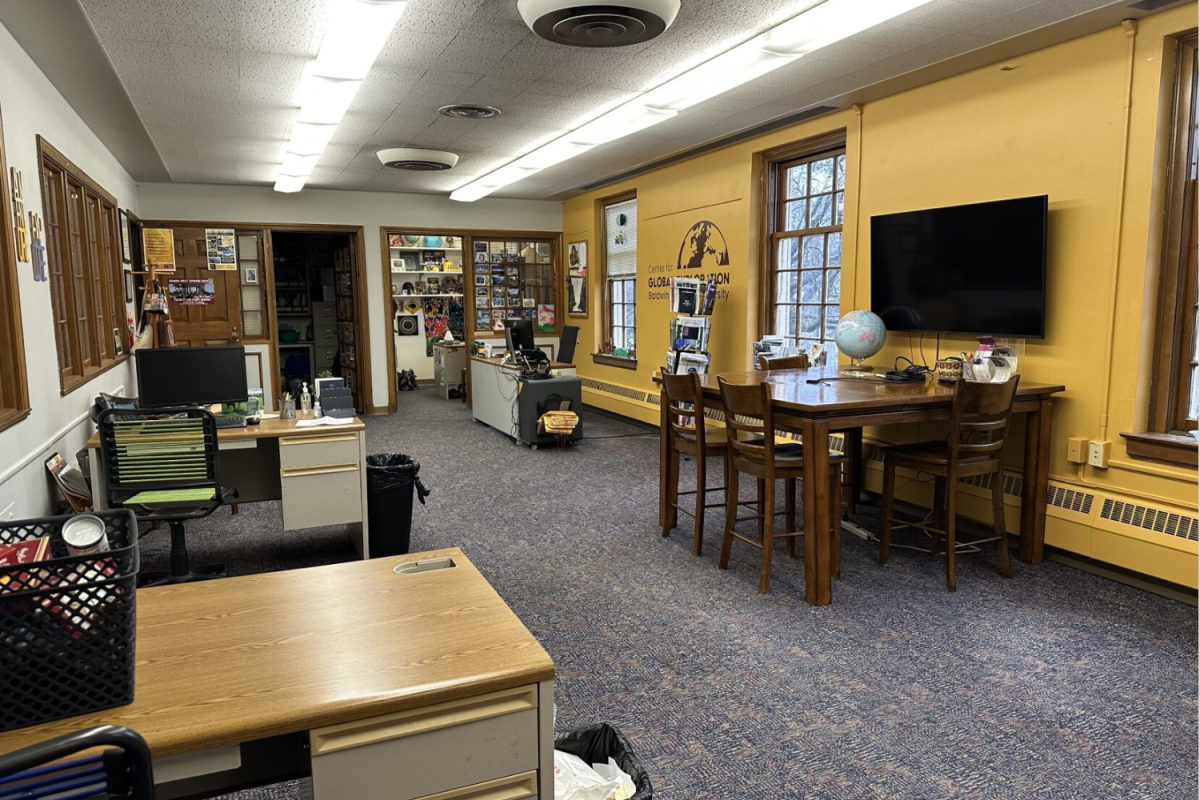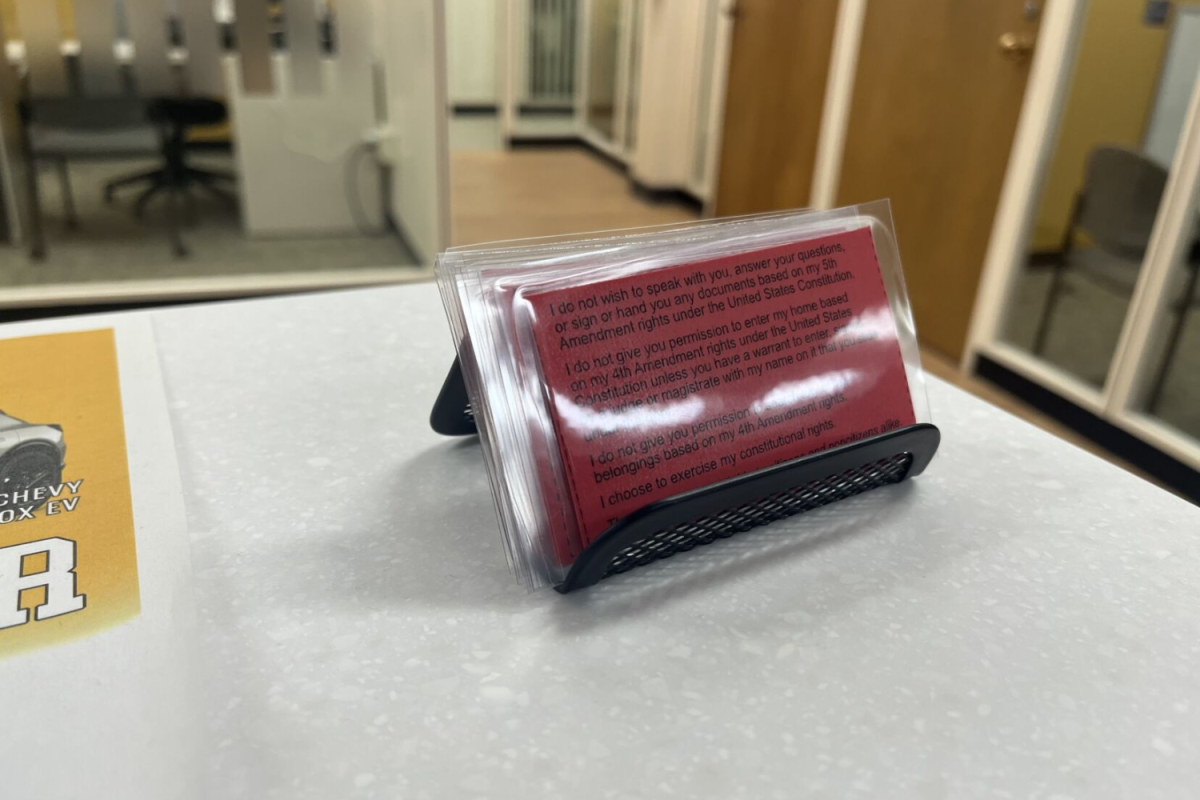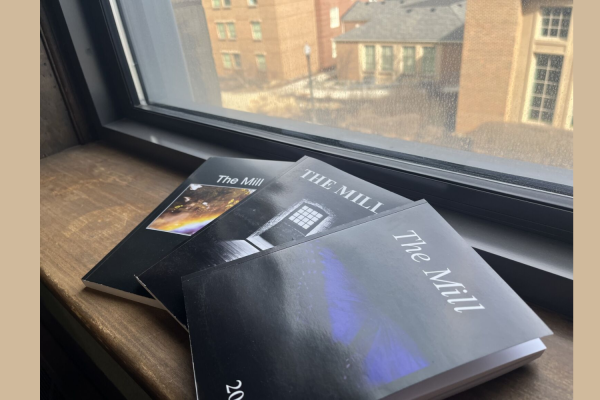Conservatory changes ensemble rehearsal schedule that dated back decades
Launching this Spring 2023 semester, the new Conservatory of Music rehearsal schedule aims to address students’ mental health.
The Baldwin Wallace Conservatory of Music will be changing the years-old ensemble rehearsal schedule to address mental health concerns within the institution.
After about 90 years of using the same rehearsal schedule for musical ensembles, the Baldwin Wallace Conservatory of Music is implementing an entirely new rehearsal schedule aimed at improving students’ mental health.
Currently, students in Conservatory ensembles rehearse late in the evening throughout the week. Brendan Caldwell, the chair of ensembles and conducting and the director of wind ensembles, said that this schedule, devised in the 1930s, was designed to accommodate members of the Berea community who would participate in the ensembles and could only rehearse after work.
Caldwell said that it was time to make a change to this years-old schedule that no longer pertained to the Conservatory’s culture.
“We don’t use people from the community anymore and it’s lost all of its advantages …and also [it’s] a heavy load on the students,” Caldwell said. “They work all day, and then they take their classes, and [they rehearse until] 10 o’clock at night, and then we wonder why they’re so tired.”
The previous schedule did not allow students in these ensembles to have much free time to participate in other campus activities or take care of their mental and physical well-being, said Bonnie Vigil, a junior violin performance major.
“We don’t have time to do homework after classes because we have to go to rehearsal … and some of us don’t even have time to get dinner because rehearsal is so late,” Vigil said in an interview before the new schedule was officially adopted.
Caldwell worked with Corrie Anne Riberdy, the academic affairs manager in the Conservatory, by sharing each schedule draft with students and faculty and receiving feedback to bring back to Riberdy.
The final schedule places all Conservatory classes in a morning to mid-afternoon block, with most ensemble rehearsals taking place after all Conservatory classes have ended.
Aloe Zunic, a junior German major, said that this schedule is great for them as a commuter student because they can return home from rehearsals earlier. Zunic said the new schedule will also allow for individual practice after the group rehearsal.
“I like to practice after ensemble rehearsals, just because I feel like I’m already in the groove and I can recall their comments more easily,” Zunich said, “so I’m excited to be able to practice after ensemble rehearsals.”
Caldwell said that the only large ensemble rehearsal space currently available is in Gamble Hall, so all the ensembles cannot rehearse at the same time every day. This caused the Jazz Band and Symphonic Band rehearsal times to be moved to the morning and early afternoon on Tuesdays and Thursdays.
Symphonic Band is an ensemble that is open to anyone who has played in a band prior to college and wants to continue playing in a band, and it is mainly comprised of non-Conservatory students. Caldwell said that he and Riberdy had to go through many drafts to finalize a schedule that worked for as many people as possible, including the non-Conservatory students.
“We want to make sure the non-Conservatory majors have access to participating in the ensembles. We had to look very carefully to make sure that we weren’t cutting off the access of ensembles to the liberal arts students,” Riberdy told The Exponent via email.
However, some of these students will no longer be able to participate in the ensemble because they have classes required for their majors at the same time as rehearsal.
Leo Cook, a sophomore sociology major who is in Symphonic Band, said, “I’m not opposed to moving the ensemble [times] … I guess it’s just frustrating for me because I like doing it so much and I won’t be able to do it this semester.”
Caldwell said that even with the conflicts that have come up, there are students who have been able to plan their spring classes around the new rehearsal times because they knew of the schedule prior to registration.
“Because the kids wanted to stay in the ensemble that they felt a part of, they sort of moved heaven and earth to make it work,” Caldwell said. “Instead of losing kids, which I was afraid of deeply, we actually gained kids.”
Zunic said they always have schedule conflicts because they are a part of three ensembles, so they have accepted the fact that any schedule will not fully work for them or some other students.
“I think my biggest takeaway from talking about it with other people is that there’s always going to be schedule conflicts,” Zunic said. “But from what I’ve heard from the few friends I have who are in ensembles, it’s not too bad.”
Caldwell said that this new schedule will take students some time to fully adjust to it, but even with all the scheduling conflicts, the “feedback is positive.”
“All of it is really part of an ongoing process for us to say that mental health is at the very forefront of our thinking and our efforts,” Caldwell said. “Certain things like this schedule change, I think, are going to have tangible effects on the quality of a lot of students’ lives.
The Exponent is looking for financial contributions to support our staff and our newsroom in producing high-quality, well-reported and accurate journalism. Thank you for taking the time to consider supporting our student journalists.



































